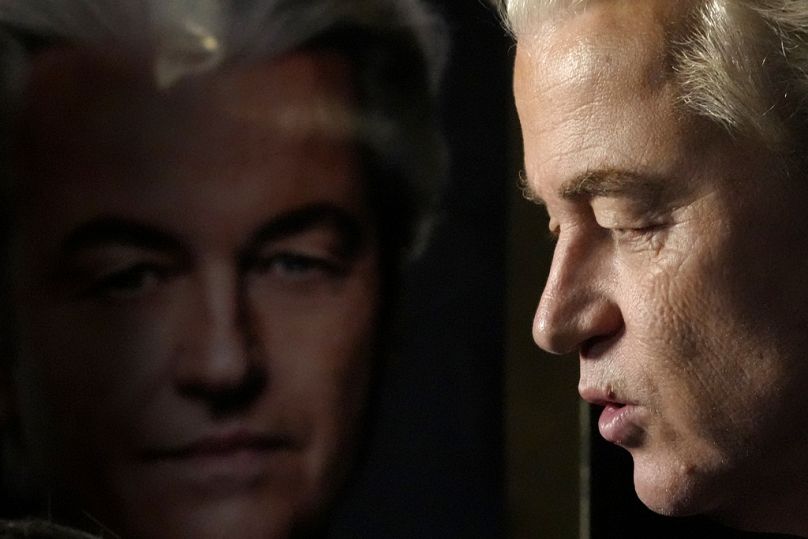Euronews International Correspondent Valérie Gauriat speaks with voters in the Netherlands to understand how the far-right PVV party secured a victory in the 2023 parliamentary elections.
Geert Wilders, an anti-Islam firebrand and the leader of the Dutch People's Party for Freedom (PVV) came first in last November's parliamentary elections with 23 per cent of the vote.
 ADVERTISEMENT
ADVERTISEMENT
 ADVERTISEMENT
ADVERTISEMENT
The champion of national preference gained unprecedented support in a climate of deep economic and social crisis, which many blame on the outgoing Rutte-led government.
This episode of Witness takes us to the economic hub of Rotterdam, the second-biggest city in the Netherlands, and one of the places where the populist leader scored the highest.
Voters across the Netherlands have veered far to the right politically. The shift has been triggered by economic and cultural anxieties that have whipped up fears about immigrants. It's an extreme example of a trend being felt across the continent that could tilt the outcome of this year's European Union parliamentary election.
“Everything [has] become more and more expensive. Everything is just really taken away from you. And people are just afraid. We want to hear about something other than poverty and budget cuts. And if he [Wilders] thinks he can make things right, then it’s fine by me”, explained shopowner Rashma.
Inflation, and in particular, the rising cost of food and energy prices, is hitting hard.
“Poverty is really a growing problem, even among working people,” said John, whose small charity collects food and necessities to be delivered to deprived families in a working-class neighbourhood in Rotterdam.
Caroline, one of his beneficiaries and a single mother of four told Euronews that she couldn’t cope without his help. She is one of the many people now counting on Wilders to pull the country out of recession.
She claimed his anti-immigration stance is part of the solution: "He is going to change a lot. The country is already full. The Dutch people want to help everybody, but first, they need to help their own country. This country is all misery!”
Wilders must still secure the support of other parties to form a coalition government.
Known for his Islamophobic, Eurosceptic and climate sceptic rhetoric, he has had to soften his narrative, and scrap plans to ban mosques, the Koran, Islamic schools, and the wearing of the burqa and niqab in the Netherlands.
Dilan Yeşilgöz-Zegerius, a former asylum-seeker, took over from former prime minister Mark Rutte as the leader of the People's Party for Freedom and Democracy (VVD) in August 2023.
Yeşilgöz-Zegerius is now in talks with Wilders and two other party leaders about the contours of a new coalition.
Nevertheless, the Muslim community in the Netherlands are still concerned for their future, said the Imam of the Essalam mosque in Rotterdam, one of the largest in Europe.
“Since the elections, violence, discrimination and the exclusion of Muslims here in the Netherlands have increased drastically,” he said.
“Now we see people who wonder if they are still welcome here, and are thinking of leaving [the Netherlands] to countries where their children can grow up in a healthy environment”.
For Valérie's full report click on the video in the media player above.











